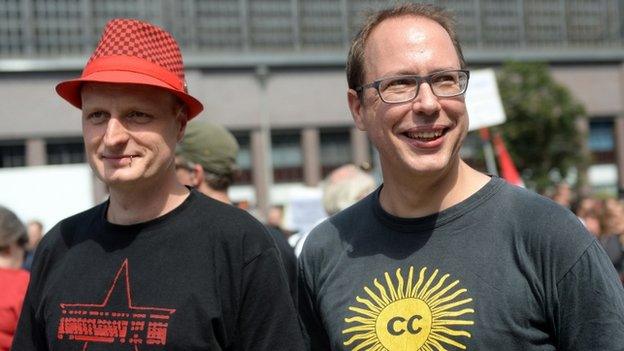Germany Turkey: Police protection for satirist Boehmermann over Erdogan poem
- Published
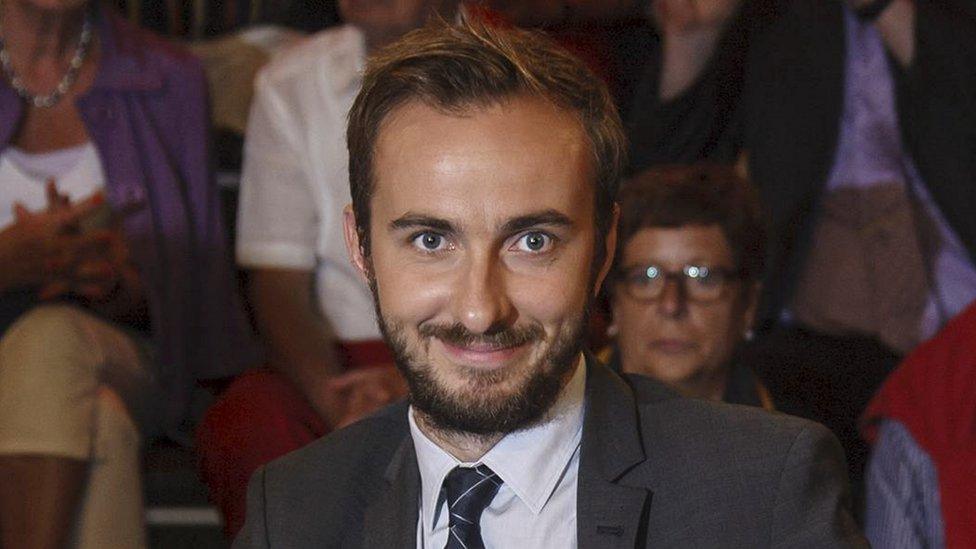
Satirist Jan Boehmermann told his audience that the contents of the poem were barred under Germany's criminal code
A German TV comic, Jan Boehmermann, has been placed under police protection after he read an obscene poem about Turkish President Recep Tayyip Erdogan.
A police spokesperson said a patrol car had been parked in front of his house.
Mr Erdogan has filed a criminal complaint against the satirist in a case that has prompted a debate in Germany over freedom of speech.
German prosecutors are investigating whether he broke a law against insulting foreign leaders.
Public broadcaster ZDF announced earlier on Tuesday that his weekly satire programme would not go ahead this week because of the "vast amount of media reporting and the resulting focus on the programme and its presenter".
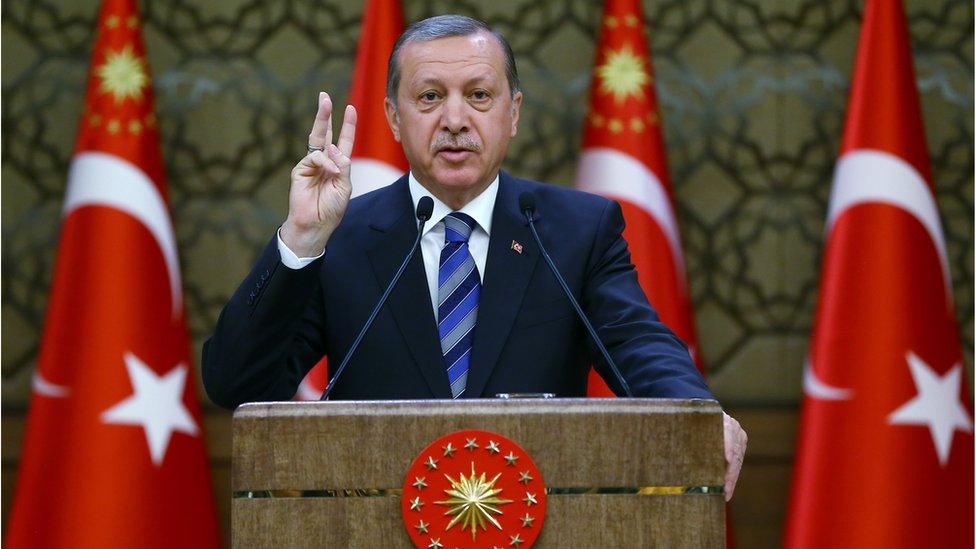
Turkey had already protested to Germany over an earlier TV programme mocking President Erdogan's authoritarian policies
It was not immediately clear if a concrete threat had been made against Boehmermann but Cologne police told German media: "When you can't rule something out then you have to do something."
Bild website reported that the satirist and his family were apparently facing a threat from supporters of the Turkish president. No request for protection measures had come from the comic but were a result of risk analysis, reports said.

A satirist's step too far? By Damien McGuinness, BBC News, Berlin

Boehmermann has relentlessly poked fun at German society
To some the poem was puerile, vulgar and irresponsible at a time when Europe needs Turkish help in the refugee crisis.
To others it was an ingenious work of subversive art, which highlighted the importance of freedom of speech: a sketch in which even President Erdogan is now playing his part.
Either way, Jan Boehmermann always goes a step further than polite society generally allows. Clever, funny and complicated, he has singlehandedly revolutionised German state broadcasting.
During the height of tensions between Athens and Berlin over the Greek debt crisis Boehmermann portrayed Greek Finance Minister Yanis Varoufakis as a vengeful motorbike-riding sex bomb, external. But it was his fellow Germans, and the rest of the media establishment, that the comedian was mocking.
A jaunty 1930's-style Springtime for Hitler remake, external wittily highlighted the similarities between the views of the anti-migrant party AfD and Nazi-era politics.
Even refugee helpers have been fair game, as Boehmermann mercilessly portrayed , externalmodern, multi-cultural Germans as a self-righteous unstoppable horde of muesli-eating, Birkenstock-wearing sexual perverts.
But for Boehmermann's many fans the fear is now that taking on Turkey's president has been a step too far.

Boehmermann, considered Germany's most incisive satirist, had read the obscene poem on his Neo Magazin Royale programme on 31 March, making clear that it included material that broke German laws on free speech. Section 103 of the criminal code bans insulting representatives or organs belonging to foreign states.
In particular, the poem made references to sex with goats and sheep, as well as repression of Turkish minorities.
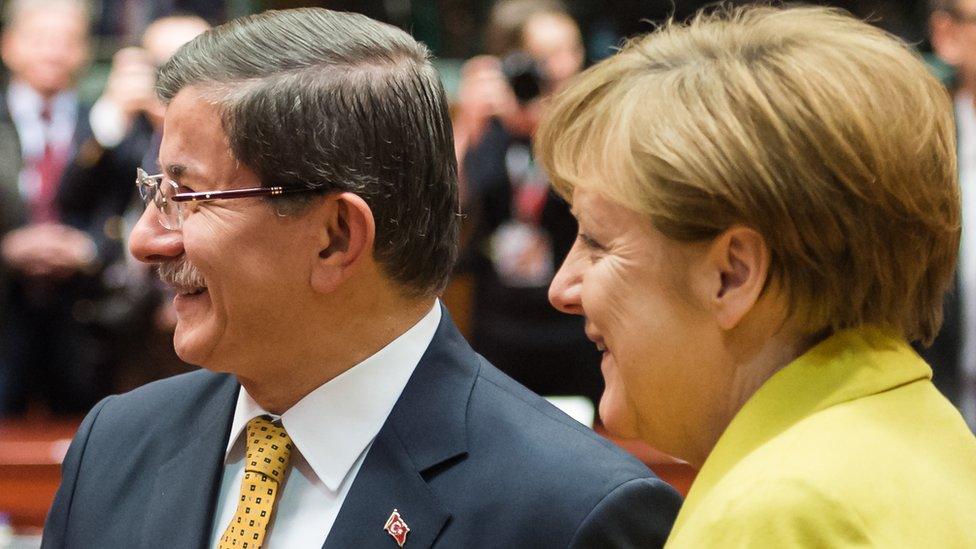
The German chancellor spoke to Turkish PM Ahmet Davutoglu after Boehmermann's poem was broadcast
Days earlier, another German TV programme that poked fun at President Erdogan had prompted the Turkish government to summon the German ambassador in protest.
On that occasion, both Germany and the EU insisted that press freedom was inviolable.
However, Chancellor Angela Merkel became involved in the latest row, when she told Turkish Prime Minister Ahmet Davutoglu that Boehmermann's poem had been "deliberately offensive". The poem itself has been removed from ZDF's website.
Although a number of viewers complained about the broadcast, Chancellor Merkel has herself been criticised by political opponents for jeopardising freedom of speech in order to shore up the EU-Turkey deal on returning migrants from the Greek islands.
Hannelore Kraft, state premier of North-Rhine Westphalia where the satirist lives, tweeted that freedom of satire was part of German democracy, external: "This should not be put in doubt. Certainly not through external political pressure."
Mrs Merkel emphasised on Tuesday that the deal with Turkey bore no relation to the legal action facing Jan Boehmermann. "Freedom of the press, opinion and science apply and are completely separate from that," she insisted.
The German chancellor had been expected to visit Turkey in the coming days, to open facilities built for refugees with EU funding. However, her spokesman made clear on Monday that there were no immediate plans for a trip.
- Published30 March 2016
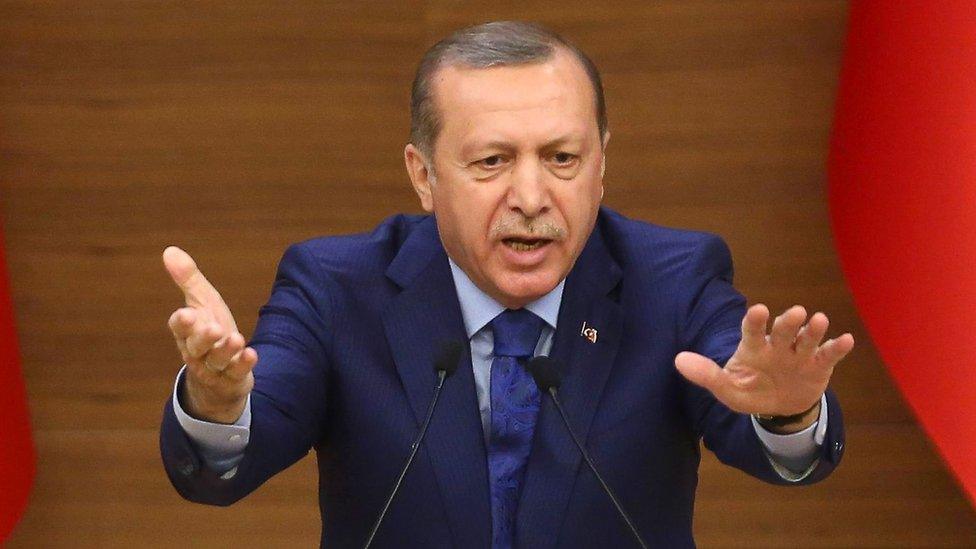
- Published19 March 2015
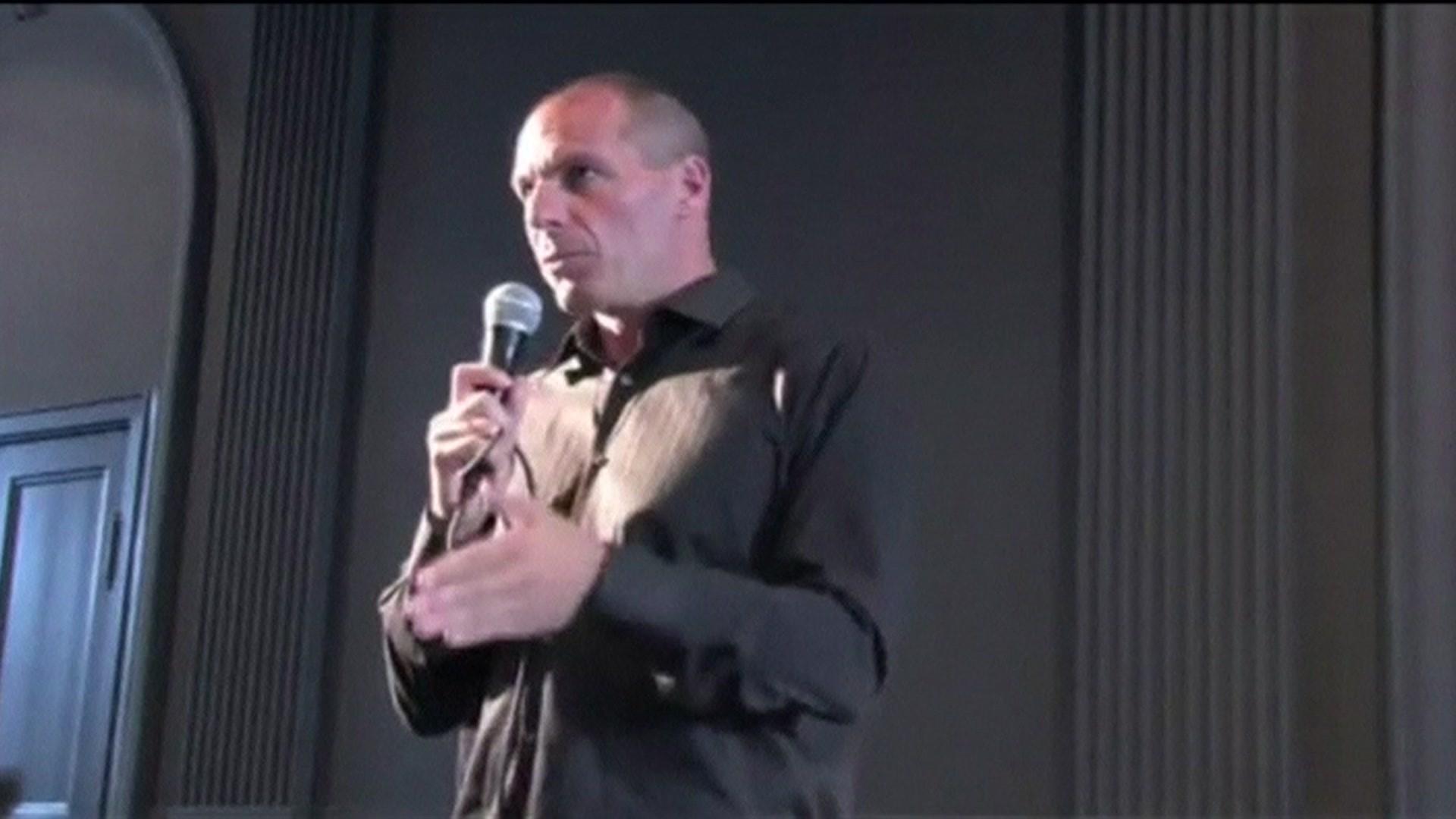
- Published25 March 2016
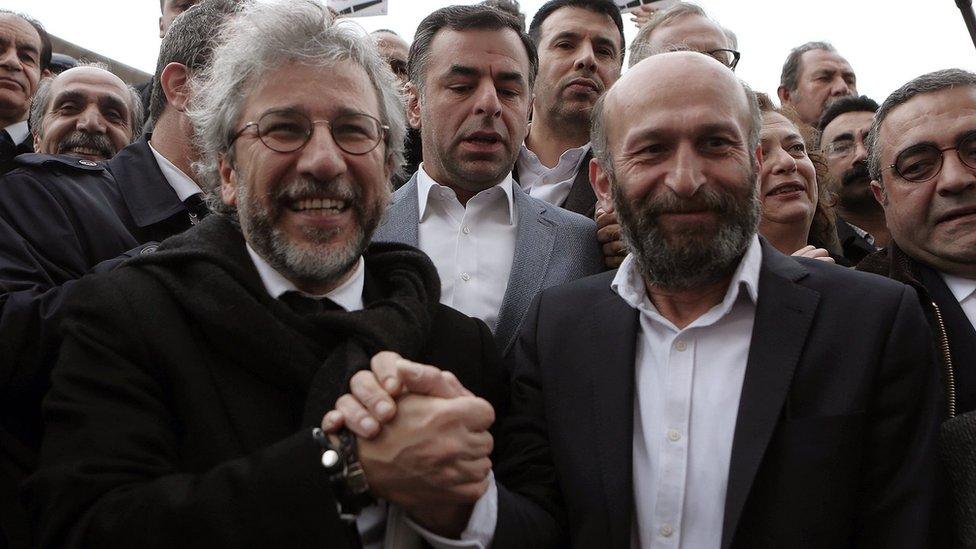
- Published6 August 2015
